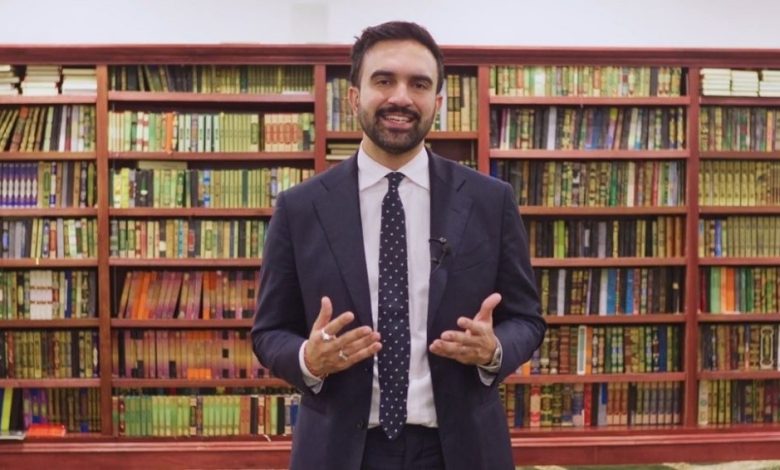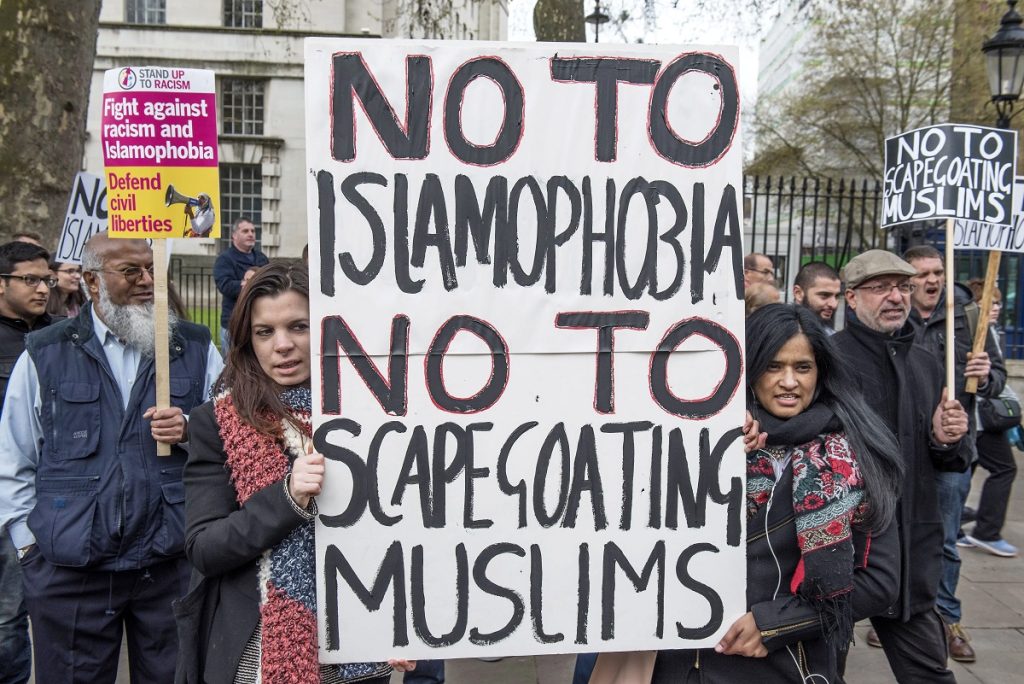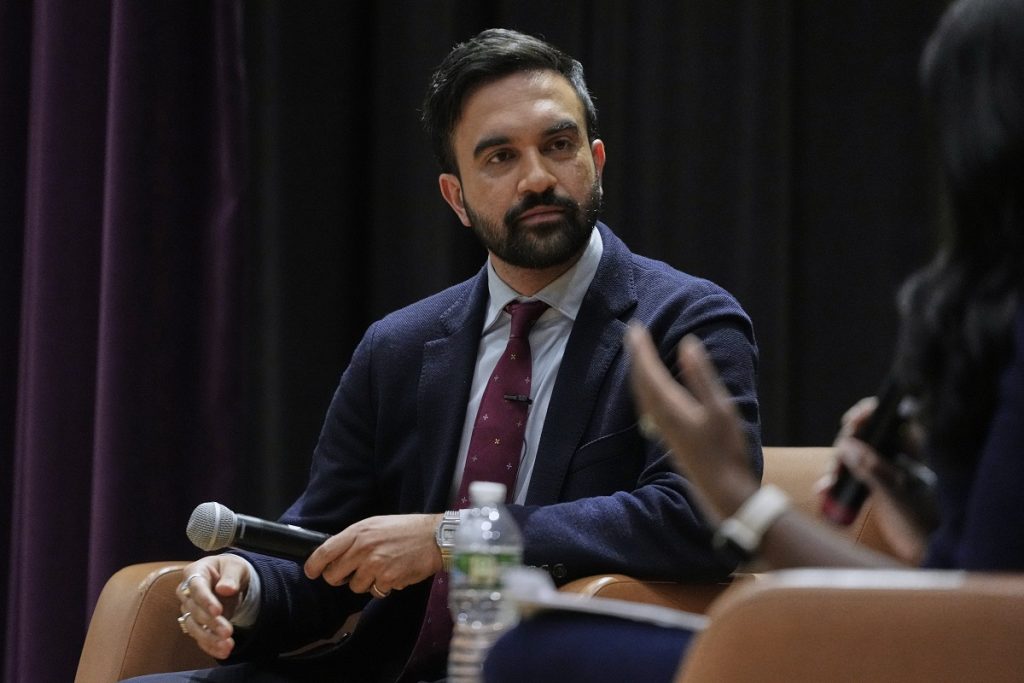Zahran Mamdani Defends Muslim Identity Amid Islamophobic Attacks in New York Mayoral Race
Facing racist smears from Andrew Cuomo and Curtis Sliwa, Democratic frontrunner Zahran Mamdani vows to embrace his faith proudly and fight for equality as he leads the race to become New York’s first Muslim mayor.

Zahran Mamdani, the Democratic candidate for New York City mayor, has firmly defended his Muslim identity in response to escalating attacks from former Governor Andrew Cuomo and his allies, describing their rhetoric as “racist and baseless.”
Surrounded by religious leaders outside a Bronx mosque, Mamdani spoke emotionally about the long history of insults and discrimination faced by Muslim residents in the city. Holding back tears, he recounted how his hijabi aunt stopped taking the subway after the September 11 attacks because she no longer felt safe. Mamdani recalled that when he first entered politics, his uncle gently suggested he “keep his faith to himself.”
“These are lessons many Muslims in New York have learned,” he said, “and in recent days, those same lessons have been echoed in the closing messages of Andrew Cuomo, Curtis Sliwa, and Eric Adams.”

A Campaign of Islamophobia
Throughout the campaign, Mamdani — a democratic socialist — has faced criticism from Cuomo and others for condemning the Israeli government, which he accused of committing genocide against Palestinians in Gaza. Cuomo claimed that Mamdani’s remarks made “Jewish residents afraid to leave their homes,” while rejecting Mamdani’s statements about Muslim New Yorkers feeling unsafe.
The tone of these attacks has intensified in recent days, prompting accusations from within the Democratic Party that Cuomo’s campaign has veered into Islamophobia. On a conservative radio show, Cuomo appeared to laugh as host Sid Rosenberg implied that Mamdani might encourage another 9/11-style attack. Cuomo responded, “That’s another problem,” later claiming he didn’t take the comment seriously.
Cuomo’s campaign also briefly posted a video mocking Mamdani for eating rice with his hands and labeling his supporters “criminals” before deleting it. A campaign spokesperson said it was uploaded by mistake.
At a rally supporting Cuomo, Mayor Eric Adams warned about potential terrorist threats in New York City — a statement widely interpreted as a veiled reference to Mamdani. “New York can’t become Europe,” Adams said. “You see what happens in other countries because of Islamic extremism.”
Republican candidate Curtis Sliwa also joined the attacks, falsely accusing Mamdani during a recent debate of supporting “global jihad.”

Mamdani’s Response
In a powerful Friday speech, Mamdani said his message was not directed at political opponents but at his fellow Muslim New Yorkers.
“The dream of every Muslim,” he said, “is simply to be treated like any other citizen in this city. Yet we’ve always been told to ask for less, to be grateful for scraps.”
He continued: “We will no longer accept that. From now on, I will embrace my faith more openly.” Mamdani admitted he had initially avoided emphasizing his Muslim identity in the campaign, hoping that focusing on policy would help him transcend prejudice — a calculation he now says was a mistake.
“No matter how good I am, it will never be enough,” he said. “I won’t change who I am, how I eat, or the faith I belong to with pride. But I will change one thing — I will no longer hide. I will find myself in the light.”
Mamdani, who scored a landslide victory in the Democratic primaries, has faced skepticism from establishment Democrats over his criticism of Israel. However, he received a major boost Friday when House Minority Leader Hakeem Jeffries endorsed his campaign.
In a press conference later that day, Cuomo accused Mamdani of “playing the victim for political gain,” denying widespread Islamophobia in New York. “Don’t tell me New Yorkers are anti-Islam,” Cuomo said. “They’re not. What Mamdani is doing is the oldest political trick — dividing people.”

The Race and Rising Support
Early voting in the New York City mayoral race began on Saturday, with the election set for November 4. Mamdani, the frontrunner, could become the city’s first Muslim and youngest mayor in a century if he wins.
His main rivals are Andrew Cuomo, running as an independent after losing the Democratic primary, and Republican Curtis Sliwa. Mayor Eric Adams has dropped out and endorsed Cuomo.
Since his surprise primary victory in June, Mamdani, 33, has become one of New York’s most dynamic political figures. He enjoys strong Democratic support, including endorsements from former Vice President Kamala Harris and Governor Kathy Hochul, as well as thousands of small grassroots donations — evidence of his growing popular momentum.
Polls show Mamdani leading Cuomo by a wide margin. A Marist University poll in September placed Mamdani at 46%, compared to 30% for Cuomo and 18% for Sliwa. Analysts say attacks from Donald Trump, who recently warned that New York could “turn communist” if Mamdani wins, may actually boost his appeal among progressive voters.
Born in Uganda to an immigrant family, Mamdani is known for his engaging social media presence, mixing humor with progressive politics. His campaign focuses on cost of living, social justice, and affordable housing for New Yorkers. He is also one of the most outspoken pro-Palestinian voices in U.S. politics, calling Israeli Prime Minister Benjamin Netanyahu a “war criminal” and pledging to order his arrest in accordance with the International Criminal Court’s warrant.



